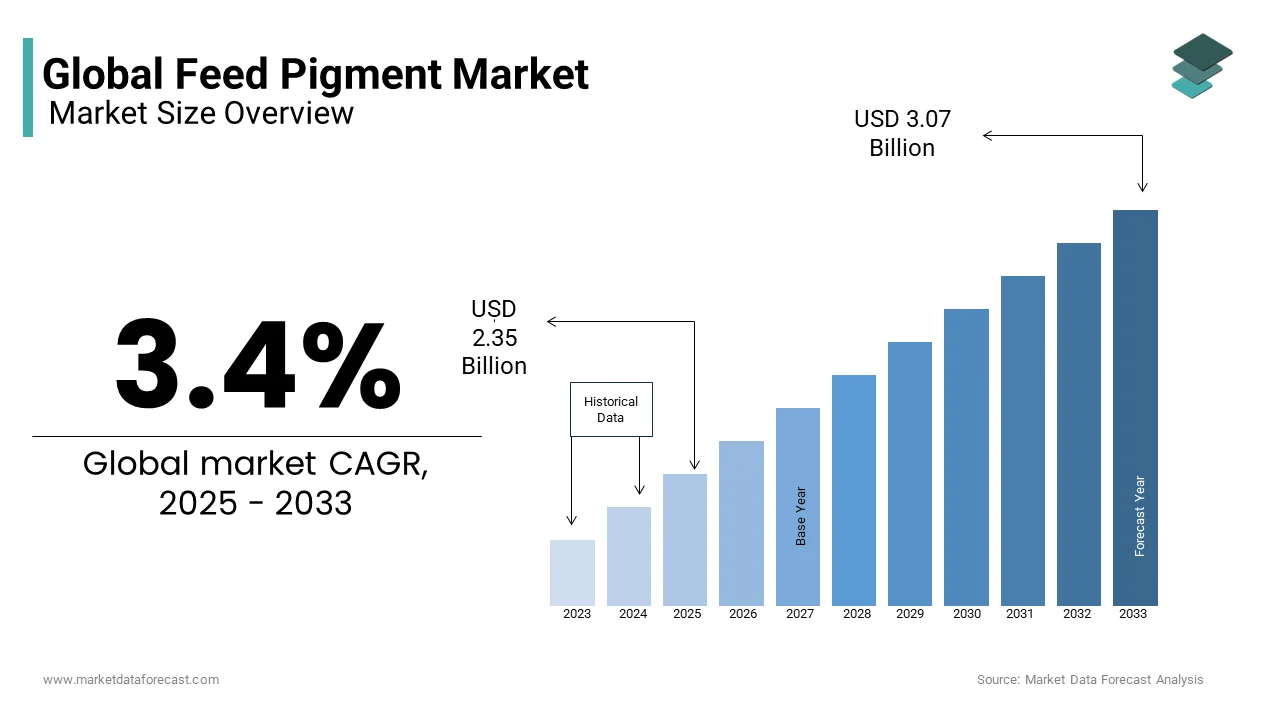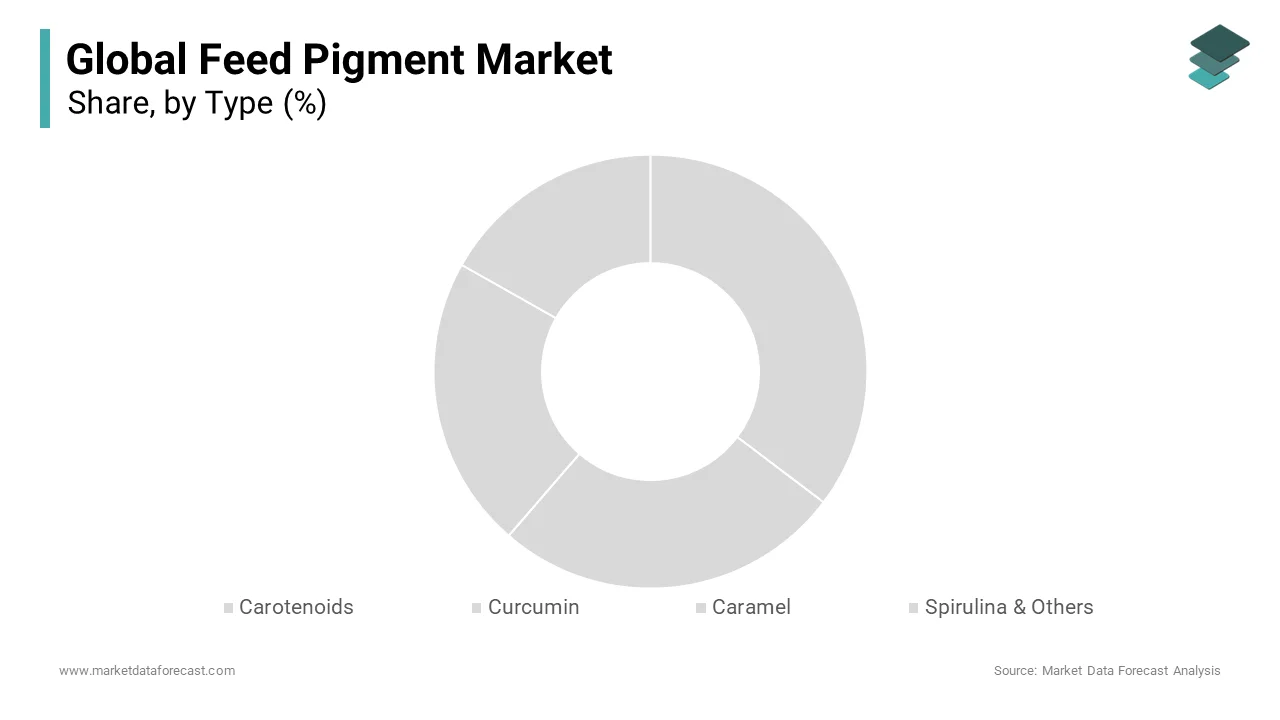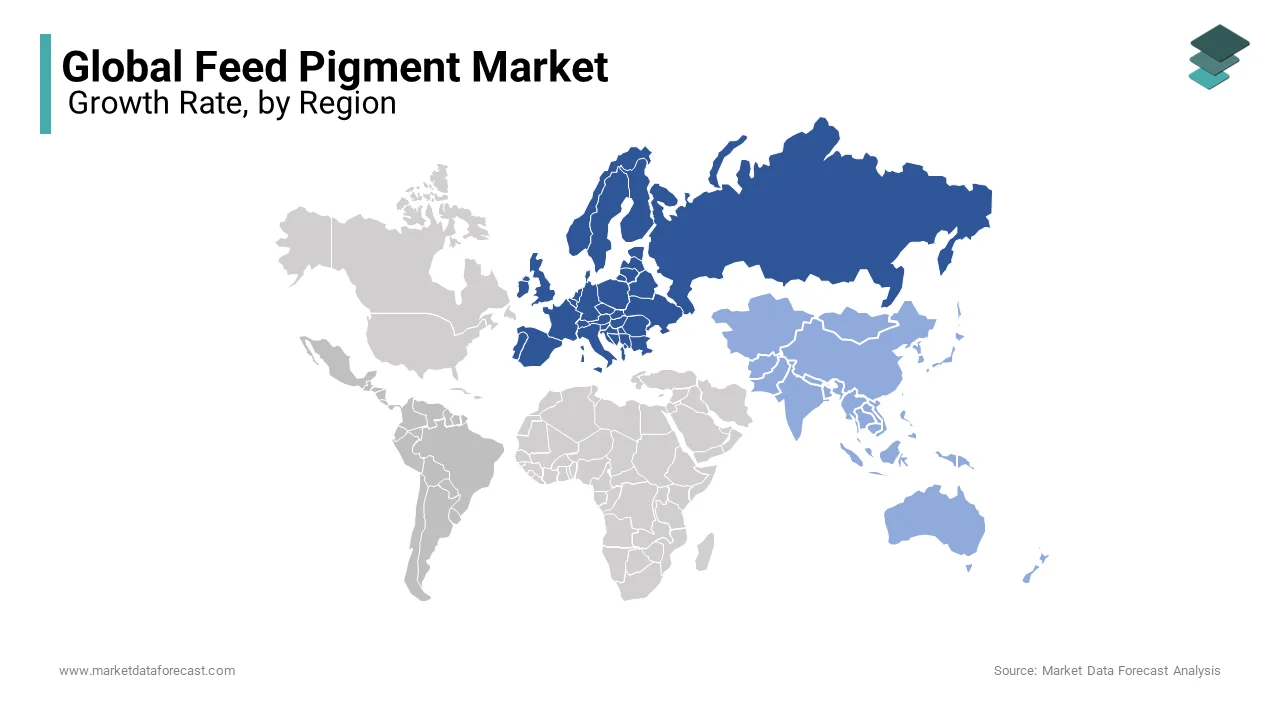Global Feed Pigment Market Size, Share, Trends & Growth Forecast Report - Segmented By Based On Type (Carotenoids (Beta-Carotene, Canthaxanthin, Lutein, Astaxanthin, Lycopene, Zeaxanthin, Other Carotenoids), Curcumin, Caramel, Spirulina & Others), Carotenoids Source (Natural, Synthetic), Livestock (Swine, Ruminants, Poultry, Aquatic Animals & Others), And Region (North America, Europe, APAC, Latin America, Middle East And Africa) – Industry Analysis From 2025 To 2033
Global Feed Pigment Market Size
The global feed pigment market was valued at USD 2.27 billion in 2024 and is anticipated to reach USD 2.35 billion in 2025 from USD 3.07 billion by 2033, growing at a (CAGR) of 3.4% during the forecast period from 2025 to 2033.

MARKET DRIVERS AND RESTRAINTS
Rising demand for meat, growing health consciousness among consumers to make healthy food, rising disposable incomes, and rising need for healthier livestock owing to the growth of the meat industry are some of the factors driving the market. However, factors like the high expense of synthetic pigments and the scarcity of natural pigments are restraining the growth of the market.
REPORT COVERAGE
|
REPORT METRIC |
DETAILS |
|
Market Size Available |
2024 to 2033 |
|
Base Year |
2024 |
|
Forecast Period |
2025 to 2033 |
|
CAGR |
3.4% |
|
Segments Covered |
By Type, Carotenoids Source, LiveStock, and Region |
|
Various Analyses Covered |
Global, Regional and Country Level Analysis; Segment-Level Analysis; DROC; PESTLE Analysis; Porter’s Five Forces Analysis; Competitive Landscape; Analyst Overview of Investment Opportunities |
|
Regions Covered |
North America, Europe, APAC, Latin America, Middle East & Africa |
|
Market Leaders Profiled |
BASF SE, Royal DSM N. V., Kemin Industries, Inc., D.D. Williamson & Co., Inc. (DDW), Guangzhou Leader Bio-Technology Co., Ltd, Behn Meyer Group, Innovad AD NV/SA, Novus International, Inc., Synthite Industries Ltd and Vitafor NV. |
SEGMENT ANALYSIS
Global Feed Pigment Market By Type

Further based on Carotenoids, the market is further segmented into Beta-Carotene, Canthaxanthin, Lutein, Astaxanthin, Lycopene, Zeaxanthin, and Other Carotenoids. Carotenoids dominated the market in 2015 owing to its widespread usage.
REGIONAL ANALYSIS

Europe accounted for the largest share globally owing to the increased awareness about the benefits of feed pigments. Asia-Pacific is expected to be the fastest-growing market owing to factors like large population, growing health consciousness among people and rising disposable incomes.
KEY MARKET PLAYERS
The key market players in the global feed pigment market are BASF SE, Royal DSM N. V., Kemin Industries, Inc., D.D. Williamson & Co., Inc. (DDW), Guangzhou Leader Bio-Technology Co., Ltd, Behn Meyer Group, Innovad AD NV/SA, Novus International, Inc., Synthite Industries Ltd and Vitafor NV.
MARKET SEGMENTATION
This research report on the global feed pigment market has been segmented and sub-segmented based on type, carotenoid source, livestock, and region.
By Type
- Carotenoids
- Beta-Carotene
- Canthaxanthin
- Lutein
- Astaxanthin
- Lycopene
- Zeaxanthin and Other Carotenoids
- Curcumin
- Caramel
- Spirulina & Others
By Carotenoids Source
- Natural Feed Pigments
- Synthetic Feed Pigments
By Livestock
- Swine
- Ruminants
- Poultry
- Aquatic Animals and Others
By Region
- North America
- Europe
- Asia Pacific
- Latin America
- Middle East and Africa
Frequently Asked Questions
What trends are influencing the feed pigments market?
Key trends influencing the market include the shift towards natural and organic feed additives due to growing concerns over synthetic additives' environmental and health impacts. There's also a focus on sustainable and environmentally friendly production processes. Technological advancements in feed pigment production and application are also shaping the market.
What is driving the growth of the feed pigments market?
The growth of the feed pigments market is driven by several factors, including increasing demand for meat, poultry, and aquaculture products, rising consumer preference for the visual appeal of animal-derived foods, and growing awareness of the health benefits of natural feed additives for livestock.
What are the challenges faced by the feed pigments market?
Challenges include regulatory constraints, the high cost of natural pigments compared to synthetic ones, and the need for ongoing research to prove the efficacy and safety of new pigment sources. Additionally, there is a growing consumer demand for clean-label products, which can limit the use of certain synthetic pigments.
Related Reports
Access the study in MULTIPLE FORMATS
Purchase options starting from
$ 2500
Didn’t find what you’re looking for?
TALK TO OUR ANALYST TEAM
Need something within your budget?
NO WORRIES! WE GOT YOU COVERED!
Call us on: +1 888 702 9696 (U.S Toll Free)
Write to us: sales@marketdataforecast.com